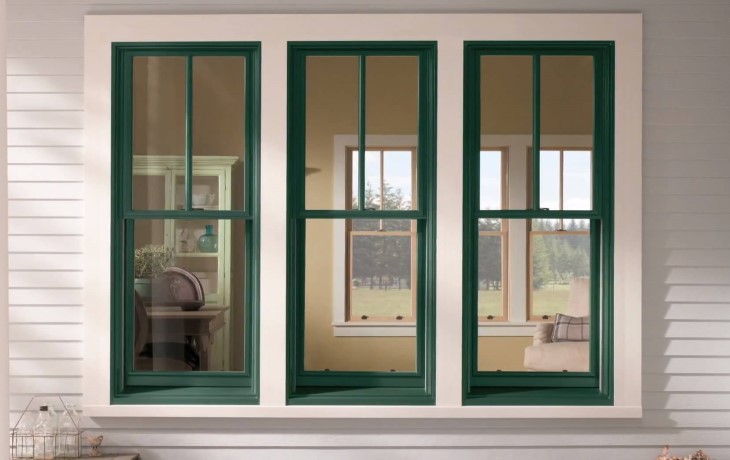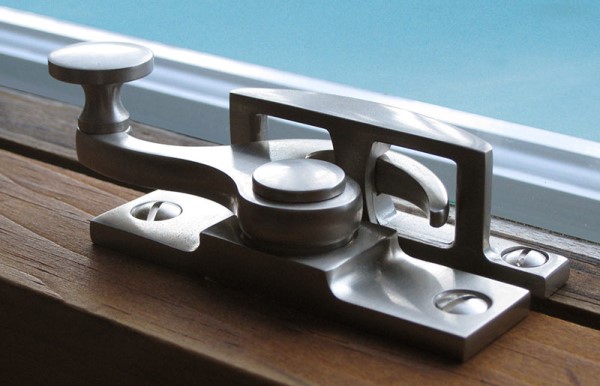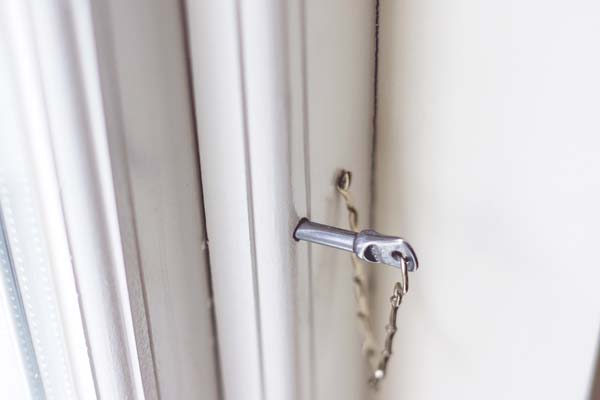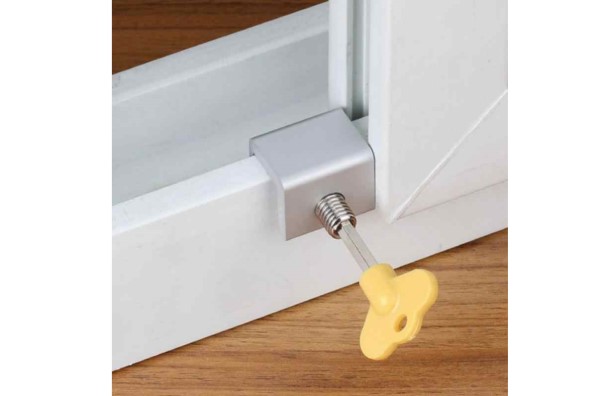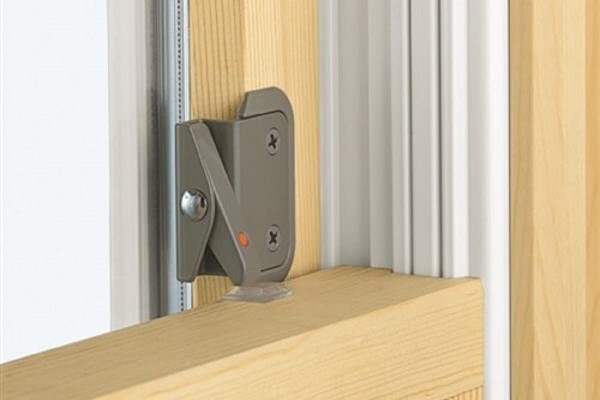Simple locks can prevent children from tumbling out and intruders from getting in — all without making your house resemble a fortress. Best of all, locks are cheap, easy to install, and accessible to both renters and homeowners.
More: Best window security bars
As is always the case with home security, the best system is a network of alarms, cameras, motion sensors, and other physical barriers. In fact, many people install window locks and then leave windows open or forget to use the locks at all. For extra peace of mind, consider installing an alarm system that will notify you about open windows.
For more recommendations, read the beginner’s home hardening guide.
Summary:
- About a quarter of burglars enter homes through windows.
- To avoid the sound of broken glass, which can attract attention, many intruders first check to see if windows are locked or able to be pried open.
- Locks are common on the ground floors, but installing them on upper level windows can keep children from falling.
- Add metal track locks or sash locks to windows that already have plastic locks for extra reinforcement.
- A good rule of thumb when choosing a security lock from any brand: avoid plastic and look for locks made of steel or aluminum.
- Track locks are cheap and take seconds to install. They make it hard to pry open your window.
- Ground floor AC units are an easy access point for intruders. Window bar locks can prevent these windows from being forced open.
- It’s easier for intruders to break a window and pry it open it than it is to break a window and climb through broken glass. Keyed window locks make opening a broken window almost impossible.
Amazon and most hardware stores sell locks made by a bunch of reliable brands. In our experience, and based on hours of additional research, we know you won’t go wrong with the following locks:
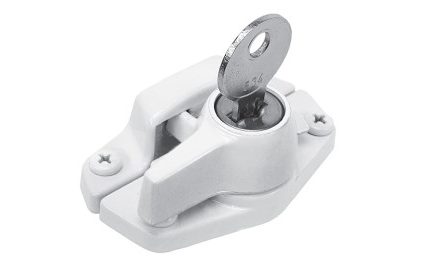
Best for vertical slides:
Defender Security keyed Sash Lock
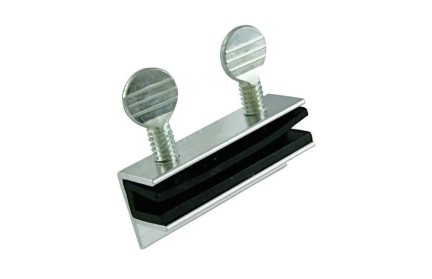
Best for horizontal slides:
Lion Locks sliding window lock
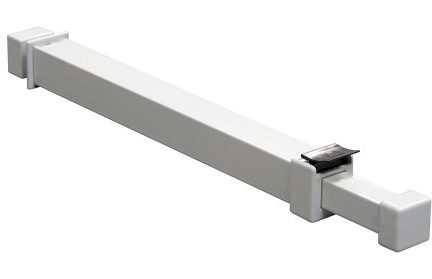
For windows with AC units:
Ideal Security window security bar
Be prepared. Don’t be a victim.
Want more great content and giveaways? Sign up for The Prepared’s free newsletter and get the best prepping content straight to your inbox. 1-2 emails a month, 0% spam.
Types of window locks
All the locks listed below are simple to install. At most you’ll need a drill and some screws. Across the board, locks are inexpensive. Simple sash, slider, or pin locks will cost a few dollars, while locking bars and fancy stop locks can retail between $25 and $50.
Sash Locks are extremely versatile and can be used on just about any type of window. Many windows come with sash locks built in. They’re made up of two pieces: a lever that attaches to the window and a lock on the window frame.
If you don’t want anything fancy but do want to replace old locks with something sturdier, a sash lock is the way to go.
If you travel a lot, or rarely open your windows, you can purchase keyed sash locks for around $10 each. Note that depending on the brand, each lock could come with a different key.
Tip: we’ve seen people use keyed sash locks to keep their disabled children from trying to get through windows. Just make sure you know where the keys are in case of a fire or other emergency that requires escape.
Pin Locks are large pins that fit in a window frame to hold it closed. They work with single hung, double hung, and slider type windows. All you need to install a pin lock is a drill and some screws. Install the chain on the window frame and then drill a hole for the pin.
An advantage of pin locks: if you drill holes at multiple heights in the frames, you can open your window a crack for air flow while still keeping it pinned.
No big deal if you forget to close your window, either. The pin will keep the window from opening any further. This makes pin locks a great solution for people who like to have their windows open but also want peace of mind. Pin locks shouldn’t cost more than $5 each, and you can buy them on Amazon or at your local hardware store.
Track Locks clamp into the track of sliding windows or doors. They don’t require any type of structural modification at all, so they’re ideal for renters or those who don’t plan to stay in their homes permanently.
Track locks hold sliding windows in place with a screw or a bolt that can be tightened by hand. Tighten the lock to hold the window completely closed or open a crack for ventilation. For extra, more permanent security, you can buy a track lock with a removable allen key. Most people should be fine with a $15 pack of ten track locks from Lion Lock.
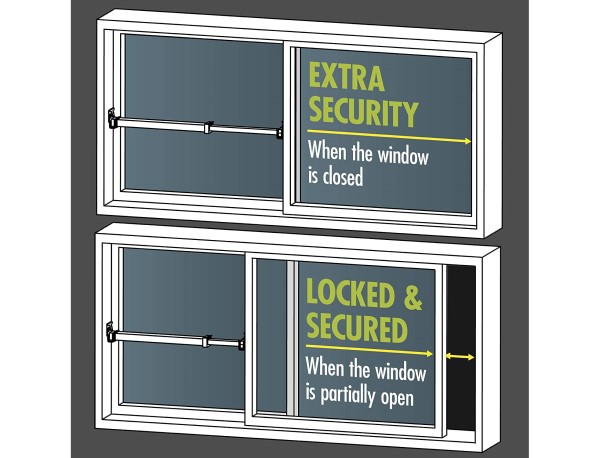
Bar Locks are bars that prevent a single hung or slider type window from opening. They look a bit like indoor security bars, but they work a little differently. Unlike bars mounted around windows, bar locks obstruct a window’s path.
With a bar lock fully installed, you won’t be able to open your window at all. This makes them great to use in the winter or when you go out of town. Bar locks can be easily configured to accommodate and secure a partially opened window. People with air conditioning units in ground floor windows often use bar locks to keep their AC in place. Bar locks typically retail for around $25.
Stop Locks are small, articulating wedges that sit between the frames of single hung and double hung windows. When the wedge is out, the window can’t move. But if you push the wedge in, you can open the window from the inside to get fresh air.
If your children are small enough that they won’t be able to reach the top of the window, these do double-duty for child-proofing.
Stop locks are among the most user friendly window locks because they engage automatically when a window is closed and don’t have any extra parts that can get lost. They’re priced accordingly — an Andersen stop lock costs around $40 on Amazon. If that gives you sticker shock, pin locks are a great alternative. They do nearly the same thing but cost about a tenth of the price.
Different windows call for different locks
It’s possible to add locks to windows of all styles while still using them for what windows are supposed to provide: a view of the outdoors, ample light, and fresh air.
Locks are pretty versatile, but their product descriptions can be confusing. Not everyone can instantly tell a casement window from a hopper. And what exactly does double-hung mean? Once you know what kind of locks you want to use in your home, it’s smart to take a look at your existing windows to make sure they’ll work.
For what it’s worth, most American homes have single-hung, double-hung, or sliding windows. Just about all of the lock styles above are compatible with these windows — you can get locks with a key, a wedge, or a bar depending on your preference and how often you’d like to open the window.
Windows that hinge open (like casement, awning, or hopper windows) call for locks that prevent the window from swinging open. If you have a lot of windows like these, pin and sash locks are probably your best bet.
